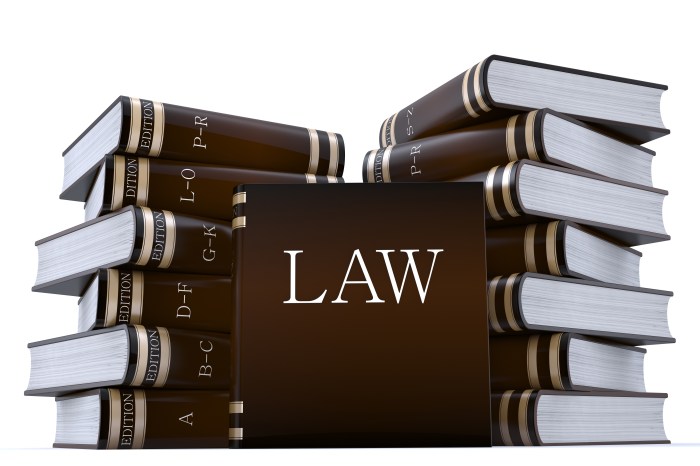Law dictated by a sovereign or higher authority stands as a cornerstone of legal systems worldwide, shaping the very fabric of our societies. From ancient codes to modern constitutions, this body of law exerts a profound influence on our lives, dictating our rights, responsibilities, and the boundaries of acceptable conduct.
Embarking on this exploration, we delve into the intricacies of sovereign law, tracing its historical evolution, examining its sources and forms, and analyzing its scope, limitations, and enforcement mechanisms.
As we unravel the complexities of sovereign law, we uncover the fascinating interplay between power, authority, and justice. We explore the role of custom and precedent in shaping legal norms and examine the mechanisms used to enforce and interpret sovereign law.
Through comparative analysis, we draw insights from diverse jurisdictions, identifying trends and best practices in the development and implementation of sovereign law.
Definition and Nature of Sovereign Law
Sovereign law refers to the body of laws dictated by a sovereign or higher authority within a particular jurisdiction. Sovereignty implies the supreme and independent power to make and enforce laws without external interference.
Sovereign laws are typically characterized by their binding nature, universal applicability within the jurisdiction, and enforceability through various mechanisms.
Examples of sovereign laws include constitutions, statutes enacted by legislatures, and judicial decisions issued by courts.
Sources and Forms of Sovereign Law
Sovereign law can originate from various sources, including:
- Constitutions: Fundamental laws that establish the framework of government and define the rights and duties of citizens.
- Statutes: Laws enacted by legislative bodies, such as parliaments or congresses.
- Judicial decisions: Precedents established by courts through the interpretation and application of existing laws.
- Customary law: Laws based on long-standing practices and traditions that have gained legal recognition.
Sovereign law can take different forms, such as:
- Written laws: Codified in documents, such as constitutions and statutes.
- Unwritten laws: Based on customs, traditions, and judicial precedents.
Scope and Limitations of Sovereign Law

Sovereign law applies to all individuals and organizations within the jurisdiction of the sovereign authority.
However, the scope of sovereign law is subject to certain limitations, including:
- International law: Treaties and agreements that bind the sovereign to certain obligations.
- Fundamental rights: Inalienable rights and freedoms recognized by international law and constitutional provisions.
- Judicial review: The power of courts to declare laws unconstitutional or otherwise invalid.
Enforcement and Interpretation of Sovereign Law

Sovereign law is enforced through various mechanisms, such as:
- Courts: Adjudicate disputes and impose penalties for violations of the law.
- Law enforcement agencies: Police and other authorities responsible for enforcing the law and maintaining public order.
- Administrative agencies: Bodies established to regulate specific areas of society and enforce relevant laws.
Judges and other legal professionals play a crucial role in interpreting and applying sovereign law. Landmark cases shape the interpretation of laws and provide guidance for future legal decisions.
Historical Evolution of Sovereign Law
Sovereign law has evolved over centuries, influenced by:
- Ancient legal systems: Hammurabi’s Code, Roman law, and Islamic law.
- Enlightenment thinkers: Locke, Montesquieu, and Rousseau, who emphasized the importance of individual rights and limited government.
- Constitutional revolutions: The American and French Revolutions, which established the concept of popular sovereignty.
Key events in the history of sovereign law include:
- 1215: Magna Carta
- 1776: American Declaration of Independence
- 1789: French Declaration of the Rights of Man and of the Citizen
Comparative Analysis of Sovereign Law

Sovereign laws across jurisdictions exhibit similarities and differences in their:
- Sources: Constitutions, statutes, judicial decisions, and customary law.
- Forms: Written and unwritten laws.
- Scope: Application to individuals and organizations within the jurisdiction.
- Enforcement mechanisms: Courts, law enforcement agencies, and administrative agencies.
Comparative analysis helps identify best practices and trends in the development and implementation of sovereign law.
FAQ Compilation: Law Dictated By A Sovereign Or Higher Authority
What is the fundamental principle of sovereign law?
Sovereign law derives its authority from a sovereign or higher power, such as a monarch, government, or international organization, and is binding upon all individuals and entities within its jurisdiction.
How does sovereign law differ from other types of law?
Sovereign law is distinguished by its supreme authority and the fact that it is not subject to any higher legal authority. It forms the basis for all other laws and regulations within a jurisdiction.
What are the key sources of sovereign law?
The primary sources of sovereign law include constitutions, statutes enacted by legislative bodies, and judicial decisions rendered by courts.